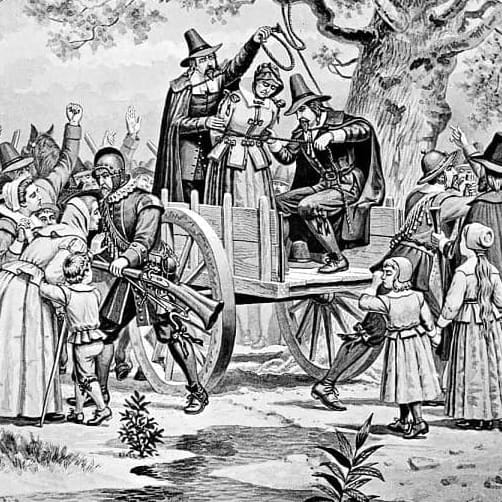Austin Powers: International Man of Mystery - Film Review Fridays
If I was forced to choose just one aspect of the film that truly sets it apart from other spoofs and in which its strength really shows, it’s got to be the characters. The assorted oddballs who populate Austin Powers are best understood as caricatures and concepts made tangible.

In the history of cinema, there have been many spies: think James Bond, Jason Bourne, Ethan Hunt – the charismatic, cool, tough guys with elite skills and a taste for adventure. Or think of Johnny English, the clueless and ever-hilarious agent of chaos – another mighty name. Indeed, these spies are classic characters, and action films wouldn’t be the same without them.
But, answer me this – for all their windswept hair and ability to buoy up the box office in even the most dire of times with another formulaic franchise entry – do these spies have mojo, baby? Are they shagadelic? Do they have velvet suits, frilly lace cravats, and enemies with names like Alotta Fagina or Dr Evil? Despite how much better almost all films could be if they did have such characters, the answer is, unfortunately, no. Only one such spy exists.
And his name? His name is Austin Powers.
Austin Powers is, of course, a fictional spy created and portrayed by comedy superstar Mike Myers. Powers first strutted onto screens in 1997 with Austin Powers: International Man of Mystery, before cementing his reputation as espionage’s grooviest cat in Austin Powers: The Spy Who Shagged Me (1999) and then sending the trilogy off with a bang (in more ways than one) in 2002's Austin Powers in Goldmember.
As much as I’d like to review the entire series – and may still, depending what else I watch over the rest of the year – such a project would no doubt end up running for something like ten pages, and no one, I know, has the time for that. Given this, the next best option is to start with the first film, International Man of Mystery. And that one begins like this: it’s swinging ‘60s London, and Austin Powers is alternately a fashion photographer, a super-spy, and the nation's most sought-after sex symbol.
As a spy, his work consists in trying to defeat supervillain Dr Evil (also played by Myers) in his plots to take over the world. So, when Dr Evil cryogenically freezes himself to wait out the free love movement, Austin does the same, and the two prepare to meet again when they are reawakened in thirty years.
When the two have thawed, the year is 1997. It’s a significant time in history – and, unfortunately for Austin, a time in which free love is well and truly a concept of the past. This means that in addition to having to confront a new, unknown world of dental hygiene, digital technology, and retired assistants when he wakes, he also has to deal with the fact that ‘Do I make you horny, baby? Do I? Do I make you randy?’ is no longer a socially acceptable, or generally appealing, thing to say to a woman you've just met. And naturally, the results of Austin's efforts to adapt are hilarious.
Dr Evil's, though, are even funnier. When he wakes, everything from the economy to the climate has changed dramatically, and he's almost completely out of his villainous depth in this new era of terrorism and political transformation. To make things even more complicated, he now has a son (the delightful Scott Evil, played by Seth Green), AND his once-gloriously fluffy cat and ever-present companion, Mr Bigglesworth, is now entirely hairless (and played, I might add, by the most cleverly named sphynx cat in existence – Ted Nude Gent).
When you add in ill-tempered sea bass, big-haired sex robots who prove that Australia’s own Divinyls really will blow your mind, and a full hour and a half of some of the most memorable quotes and characters you’ve ever encountered, it can’t be denied that Austin Powers is in every respect a masterpiece of the highest order.
Having said that, if I was forced to choose just one aspect of the film that truly sets it apart from other spoofs and in which its strength really shows, it’s got to be the characters. The assorted oddballs who populate Austin Powers are best understood as caricatures and concepts made tangible. There’s Austin: the flamboyant, promiscuous secret agent who seems to do remarkably little actual spywork, but who so entertainingly walks the line between crude and debonair, and incompetent and excellent, that you can’t help but be charmed. And then there’s Dr Evil, who has my vote as one of the all time funniest characters ever to appear on a screen, and whose habit of punctuating particularly sinister sentences with a pinky finger raised to the corner of his pursed mouth might be more universally recognisable than any other single moment of the entire film series.
Both characters are perfectly acted by Myers, and admit no possibility of criticism. Every one of the film’s other characters is of a similarly high comedic calibre and equally well-acted, from the outstandingly-named Basil Exposition – provider of spy gadgets and epitome of British affability – to all of Dr Evil’s largely hapless henchpeople, including Number Two (source of one of the film’s most unforgettably hilarious scenes), Frau Farbissina (the unnecessarily loud and severe German founder of “the militant wing of the Salvation Army”) and Scott, whose fashion sense I’m genuinely in awe of and whose intelligence, although unappreciated by his father, might be greater than that of all of the other characters in the film combined.
Now, although there are endlessly more ways I’d like to praise this film, I know this review is getting long, so I’ll wrap up by saying this: Austin Powers is clearly a work created for no purpose at all other than to be funny, and it achieves this one million (one hundred billion…) times over. No scene is sub-par. There are only a few films I’d say one has to watch in their life, and this isn’t one of them, but if you do watch it, and your sense of humour can take a few vulgarities and a certain suspension of disbelief, you most definitely will not regret it.




